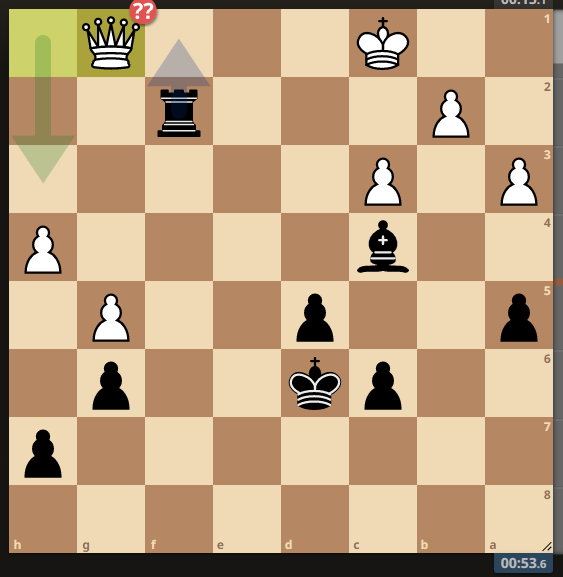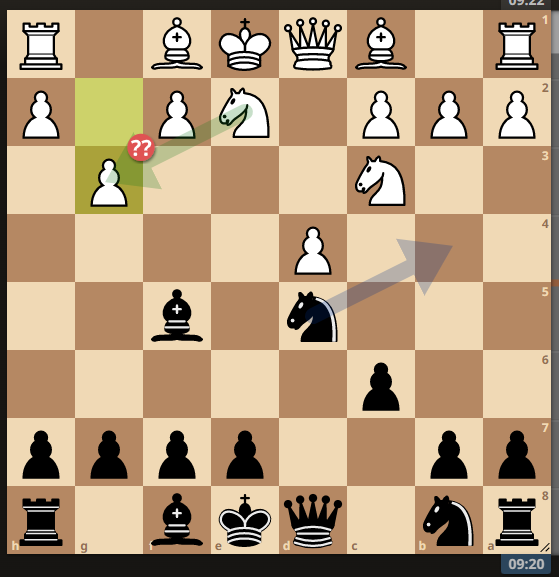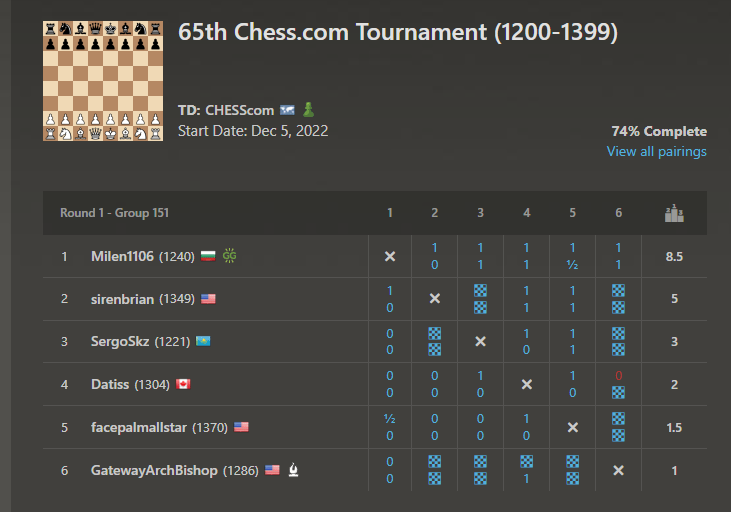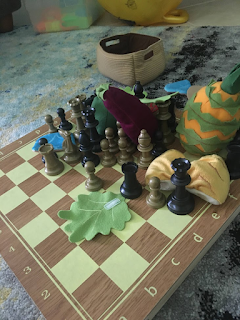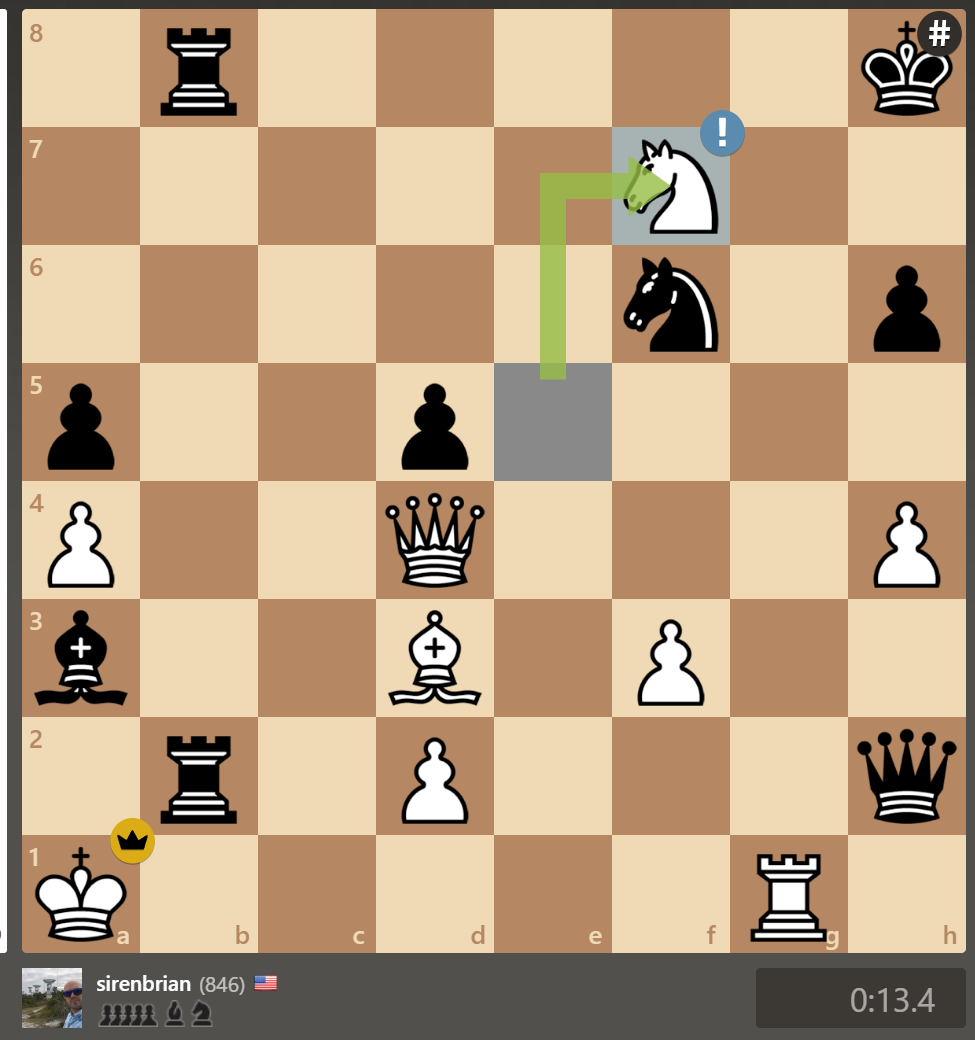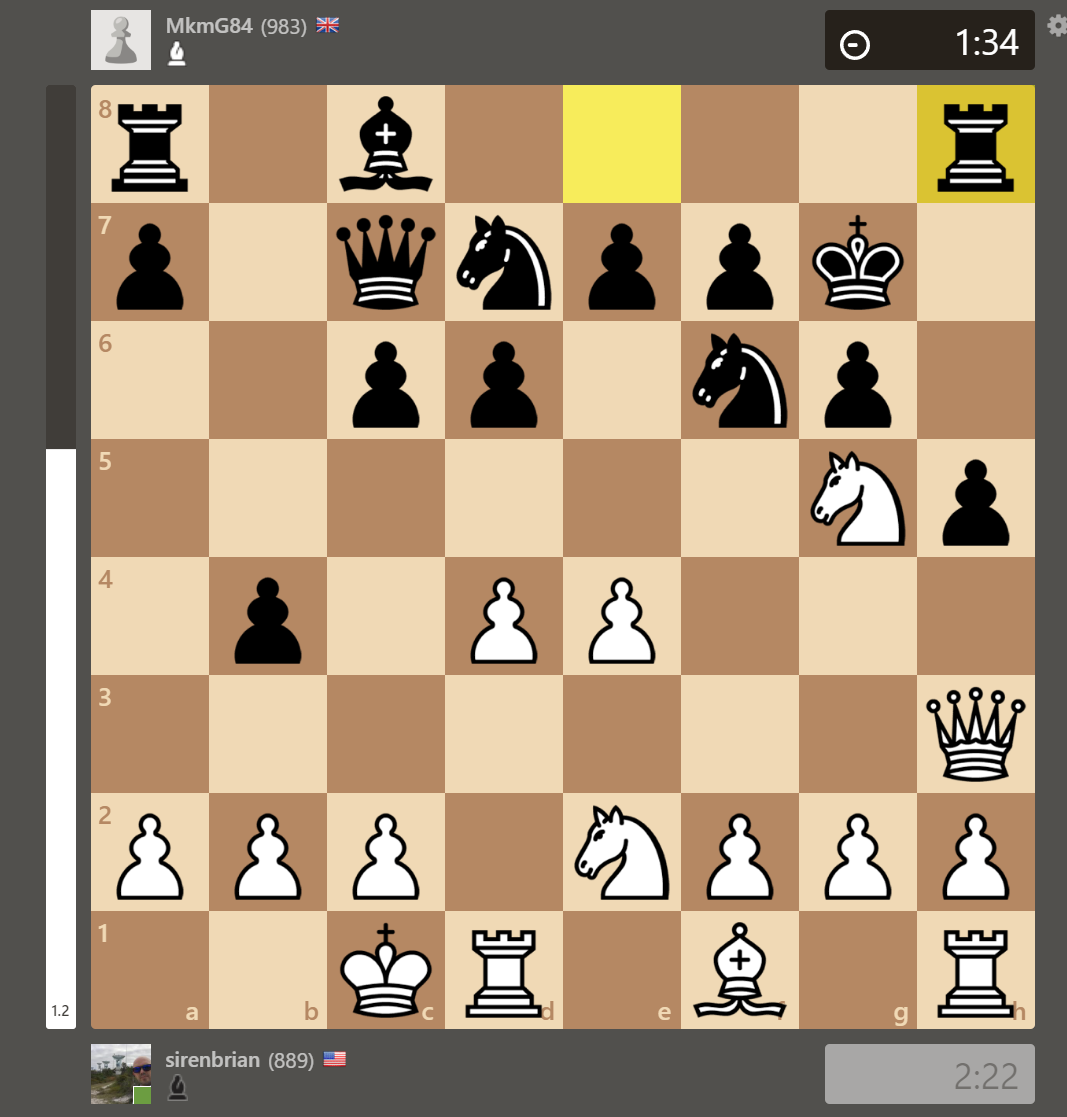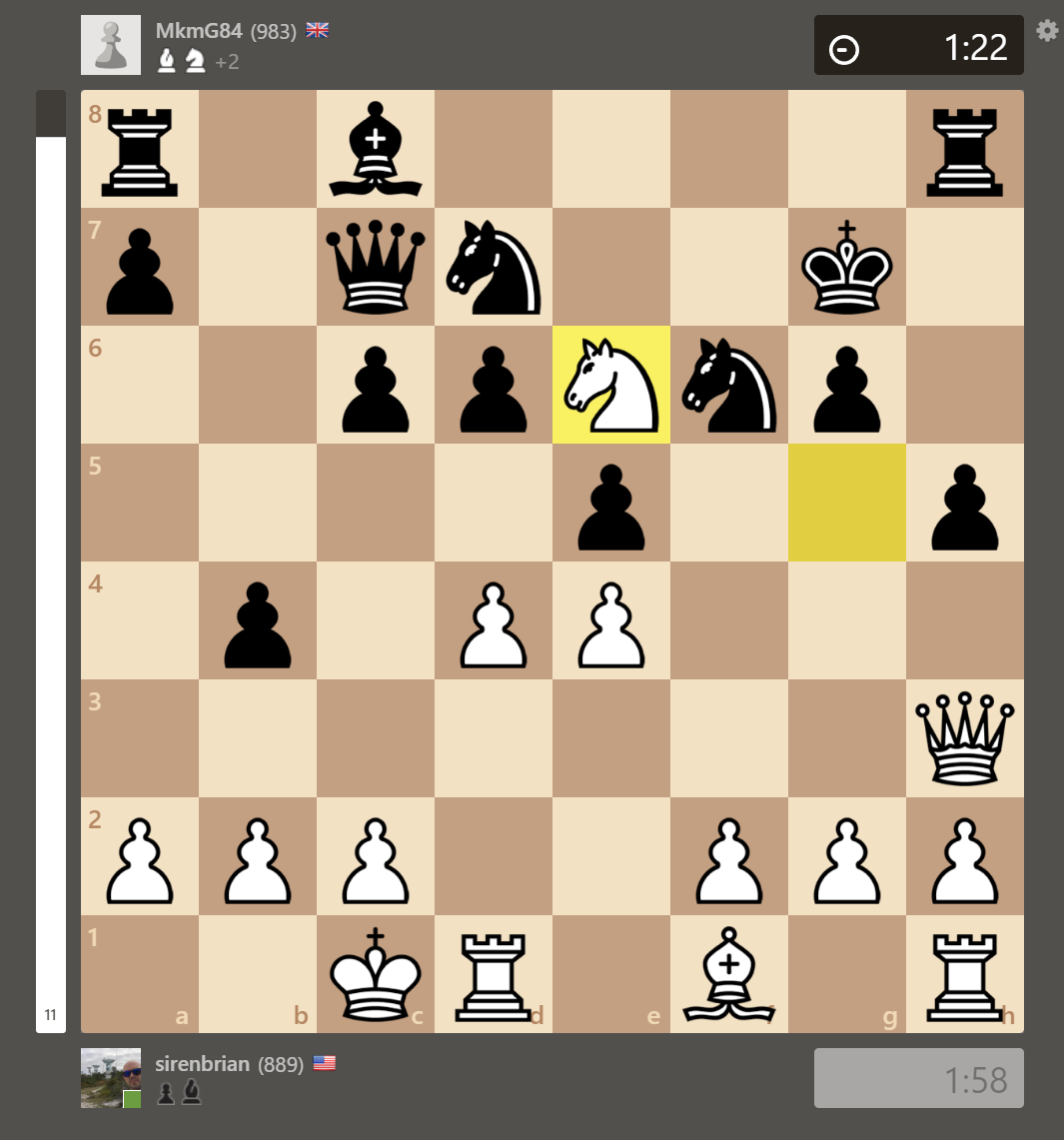I learned to play chess when I was young, like many children, but didn't take it seriously. I remember winning a tournament at school when I was seven years old, winning a chess book as my prize, but I didn't play in any organized way, or do any study, to follow up on that victory.
Fast forward to my late forties and with the easy availability of online chess I decided to give in another try...but I was incredibly hesitant to play against other people. Call it a psychological block or something; I decided just to do chess puzzles (simple puzzles here) instead and play some games against the computer.
Puzzles
A chess puzzle shows you a board with pieces in some arrangement; its your turn and there is a KILLER move that you must find. Usually the intended result is that you win the game immediately, or capture a piece - the result is not subtle. When you get it wrong, then are shown the solution, it can seem obvious and you wonder why you didn't spot it!
I made an account on chess.com and started doing the five free puzzles a day. The site tracks your progress and gives you progressively more difficult puzzles. I would make some progress and just get stuck at a plateau, failing to spot the answer in puzzle after puzzle. The worst feeling was when the intended solution was "I move here and my opponent responds with...WHAT? WHY?! I DON'T GET IT!"
There were a lot of those!
But eventually I understood the situations better, and started spotting things. My rating went from 800 to 1000, then 1200...1500....eventually I peaked at over 1800. Below you see my last year of ratings.
I'm still not quick at solving my five daily puzzles and my first guess is usually wrong! I can't just "trust my instincts" because they are terrible :) I need to look at each possible line carefully and look for good, or bad outcomes. One thing is clear - chess.com's puzzles are almost all very well chosen; the answer, when you see it, is obvious and undeniably the right move. Its very satisfying when you spot it, and it feels like your choice clicks into place.
Daily Games
I had tried playing a few games against real people, with the usual 10 or 15 minute time limit, but the pressure of running out of time felt awful and I didn't enjoy it. I looked at my options and found you could play games with a 24 hour per move limit; they call it a Daily game.
I played several of these and really enjoyed the process of taking my time with each move. I even got out a real chess board to help me consider my options in some games. My rating went from 800 (where you start) to 1026....it was time for a tournament!
Tournament
I joined a tournament that allowed players with ratings up to 1500. I expected to lose most of my games and get knocked out of the first round, but hoped to learn something along the way. I knew from watching some chess videos that lower rated players like myself often lose games just by blundering pieces - giving them away stupidly, saying "Oh, I didn't see that" when it was captured. I also hoped that my puzzles practice would help me spot opportunities when they arose.
Four players in our group of 10 dropped out quickly, failing to move in 24 hours, so me and five opponents played two games against each other. To my surprise, my opponents made mistakes more often than I did (my favorite was this one, in which I captured his queen very early...turns out its called the Khormov Gambit!) and I came second in the group! The top three from each group advance to the next round, so I thanked my good luck and went forward, expecting to be crushed this time.
In round two...I got the same result and came second in the group! My favorite result here is that I beat the group leader in both games, both of which I feel I played very well; that player is currently (as I write this) in second place for the entire tournament, so that's a great result!
OK, round three and I've got to be reaching my limit, right? Yes...but it was close! I came fourth in round three, narrowly missing the cutoff. I was very happy with finishing there and moved on to other hobbies and pastimes; mentally retiring from chess with a 1454 rating, and sitting in 11th place out of the 250 original players. But the tournament wasn't done with me.
A couple of weeks passed as other players completed their games very slowly and I didn't bother to check on the tournament to see if it was finished. A work colleague asked how I did in the end and I went to check...eighth place...hmmm....surely the final nine players should be ranked higher than me?
I checked the group standings again and something was off - the very strong Russian player who finished second had an "x" next to his name; "account closed due to inactivity". What?! My fourth place finish had just become third place and I was going to the fourth round!
A few hours later the single remaining game of round three was concluded and round 4 began; my phone lit up with 18 notifications that a game had begun and my attention was need at the board.
Update: I did better than I expected in the last round and I finished in sixth place!
--
I don't know much chess theory; I can kind of understand the London System for white, and for black I just copy white's opening pawn move, develop my knights/bishops and hope for the best. I'm REALLY surprised that my meager knowledge has got my this far; most of the credit goes to the puzzles I did and John Bartholomew's "Don't Make Mistakes" advice. It's been a real blast to test my skills and abilities, but having this many games going at the same time is quite time consuming if you want to give the games the attention they deserve.
